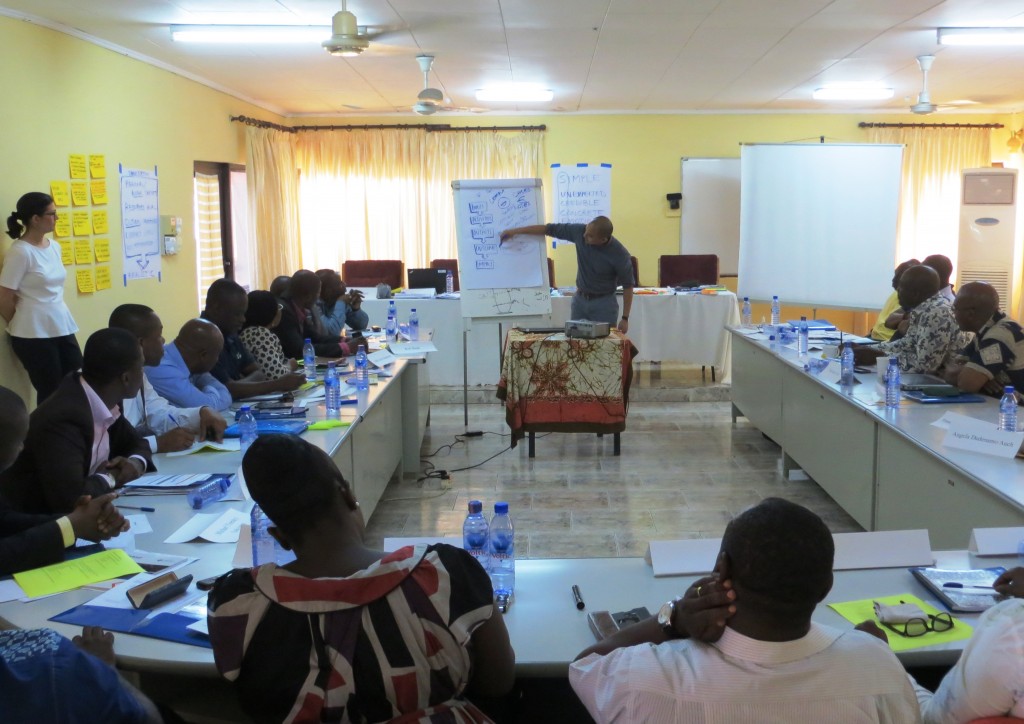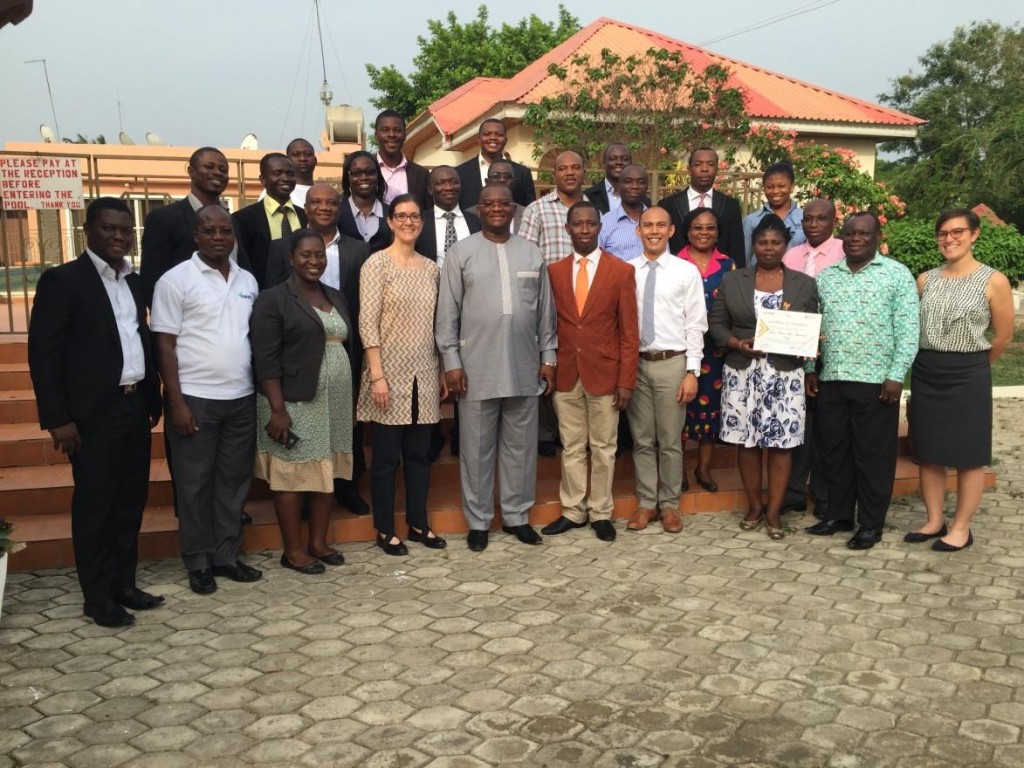Ghana Health Insurance Officials Hone Monitoring and Evaluation Skills
Categories: Announcements, Capacity Building
Over the past decade, Ghana’s National Health Insurance Scheme (NHIS) has grown from a handful of community-based health insurance schemes into a formal scheme covering over 9.8 million people (more than 35 percent of the population). Despite this success, the NHIS has struggled to establish a robust system of monitoring and evaluation (M&E) and to effectively use its health insurance data to track progress toward meeting its objectives, and to change course when needed.
To build the capacity of NHIS staff to effectively perform M&E, the Health Finance and Governance Project (HFG) recently delivered an M&E course to 26 directors, deputy directors, and senior managers of the Ghana National Health Insurance Authority (NHIA), the body that oversees the NHIS.
HFG designed the course in partnership with the NHIA specifically to fit the organization’s unique operations. “HFG’s learning needs assessment documented the challenges of using data from all 14 of NHIA’s directorates and departments,” said Mr. Francis Andoh-Adjei, Planning, Monitoring and Evaluation Deputy Director for the NHIA. “This is a truly customized course!”
The course was designed to build skills to analyze data, develop M&E plans, and create and use relevant management indicators. Insurance-specific topics such as capitation(health care provider payment), biometric identification cards, and membership management were emphasized. A video of the course’s key messages is at the bottom of the page, and can also be viewed here.
“A Point of No Return”
“Indeed, today, we have come to a point of no return,” Sylvester Mensah, Chief Executive Officer of the NHIA noted during the last day of the course. “At any point in time, the NHIA implements at least 18 projects. If we fail to monitor these projects, then we waste the money of the tax-payer. We need to have a better focus on our projects. We need to have a better strategy for measuring outcomes.”
The training concluded with drafting an M&E policy for the NHIA—the first of its kind for any government agency in Ghana—as well as the NHIA’s commitment to establish a community of practice for M&E. The M&E policy, supported by the NHIA’s new community of practice, will guide the NHIA to manage initiatives related to provider payment systems, member identification tools, and claims processing that aim to improve access to health care and improve efficiency of the scheme.
“We need evidence to make any policy reform,” explains Dr. Lydia Dsane-Selby, Director of Claims at the NHIA. “And through our work with USAID and HFG, we’re really beginning to look clearly at what we have done and the evidence for what and how reforms need to be made.”
Mr. Mensah closed the workshop by challenging participants to replicate the course throughout the NHIA and apply best practices in M&E to improve the ability of the NHIA to achieve its mission: to provide financial risk protection for citizens against the cost of quality health care.





